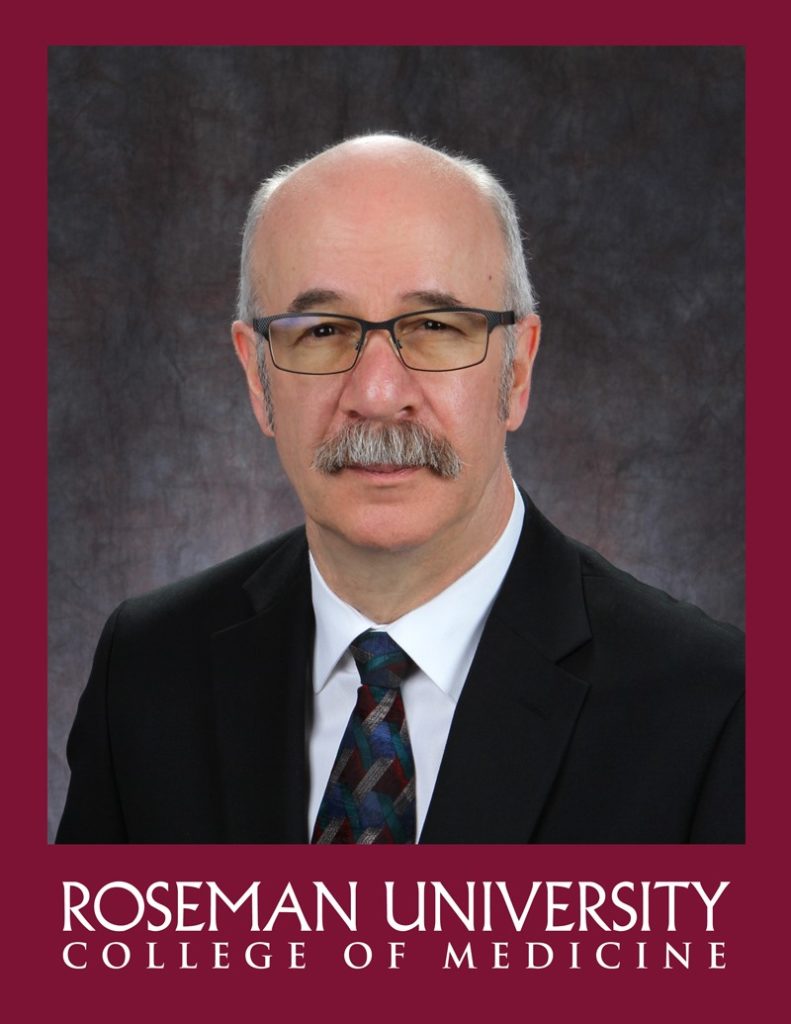Building a Dream Team to Change Medical Education in Southern Nevada
Meet Dr. Bruce Morgenstern, Senior Executive Dean for Clinical Affairs
As a pediatric nephrologist, Dr. Bruce Morgenstern is accustomed to his “lone ranger” status as a highly specialized, niche practitioner whose focus is caring for children with kidney disease and dysfunction and the 334th person nationwide to be certified as a pediatric nephrologist in 1985.
Dr. Morgenstern chose his field of medicine after completing a rotation with pediatric nephrologists as a fourth-year medical student. Describing his mentors as “delightfully crazy,” Dr. Morgenstern discovered he, too, had the ability to empathically care for very sick children while maintaining a sense of optimism and the compassion needed to care for their families as well.
Today, as a member of Roseman University College of Medicine’s dream team that is working to change medical education in Southern Nevada, Dr. Morgenstern is one of a few “holdovers” from the previous staff. He now joins other leading medical professionals brought to Roseman by Dr. Pedro “Joe” Greer, who is leading the charge to rethink how doctors and medical professionals are trained using social determinants of health such as zip code and socio-economic factors, both integral factors in Dr. Morgenstern’s nephrology practice in Phoenix before he moved to Southern Nevada.
“To set Roseman apart from other medical schools in the valley and the region, it’s critical to create a unique identity and foundation,” said Dr. Morgenstern of his belief that doing something new and groundbreaking when establishing a medical school is key to its success.
“The GENESIS program which teaches students about the social, economic, and cultural elements of the community, is already setting Roseman apart and giving the university a peg and a hook to attract a wider range of students who want to learn medicine from a more holistic perspective. It’s an exciting journey to see the Roseman University College of Medicine come to fruition and with an expanded vision of how health care should be delivered in the 21st century.”
A self-described “meducator,” Dr. Morgenstern has been involved in the clinical education of medical students for 30 years. He’s led national medical education organizations and edited a textbook on what is required to teach medical students clinical medicine. With this experience, he is well suited to help chart a course for students to experience a new and unique curriculum, and to help faculty and students maintain a healthy degree of humility.
Dr. Morgenstern’s perspective is shaped, in part, by his longtime work first at Mayo Clinic and then at Phoenix Children’s Hospital where he oversaw a nationally acclaimed program devoted to the care of children with hypertension and kidney disease. His practice there included children born in the US to undocumented parents as well as those who needed in-home dialysis treatment. According to Dr. Morgenstern, those dynamics are examples of household and situational circumstances that make the healthcare delivery model very complex.
“Thanks to our new whole-household approach to healthcare,” Dr. Morgenstern said, “future doctors trained at Roseman will be better equipped and prepared to deliver care in a more comprehensive, effective and meaningful way. And that is the best legacy possible. I am delighted to play a role in helping to improve and modernize healthcare education in Southern Nevada.”














